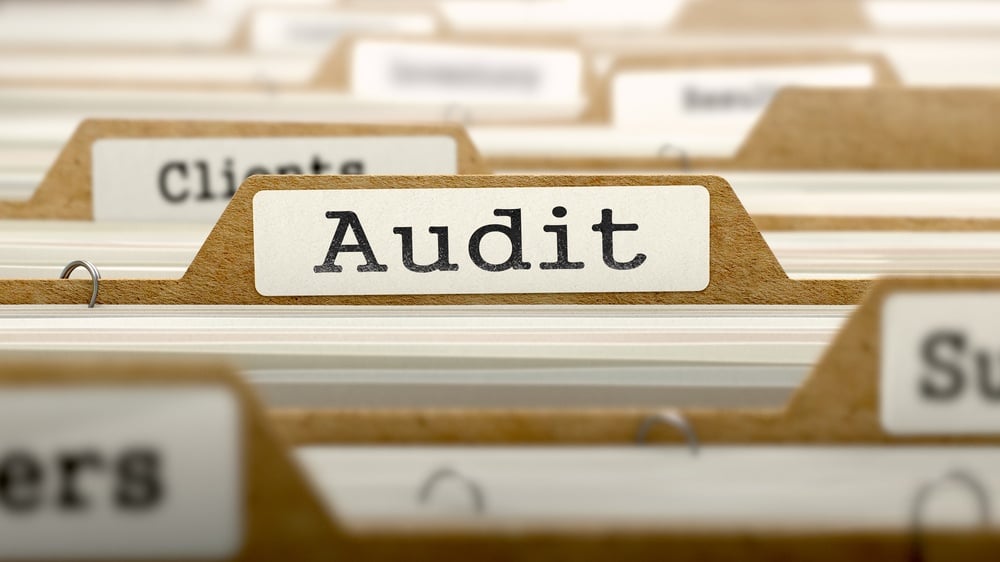Preparing for your first financial statement audit can be a daunting and nerve-wrecking task. Some companies often don’t know where to begin, so they spend countless hours preparing things that are not applicable for the audit and put unnecessary strain on their time and resources. If your company is not properly prepared, your first financial audit can be a very arduous and expensive task.
In this blog, we’ll cover what to expect as well as best practices for your first financial audit, so you’re ready if you need to be.

What does a financial audit look like?
The most common reasons why companies engage in financial audits are when:
- The company is positioning itself to go public in the future
- The company is marketing itself to a potential buyer
- The company is required to provide it for debt requirements
- The company is required to provide it to the Board of Directors.
The length of an audit can vary depending on the size of the company and whether there are necessary preparations made, but on average, an audit takes about 1-3 months to complete.
The first thing you should do when engaging in the audit is to do a thorough evaluation of your company’s current financial and business situation. If you consider your books to be well organized and compliant, you can start looking for CPA audit firms. If your books are not ready, it may not be good timing to engage in an audit.
You can break the audit down into three major phases:
1. Planning & Preparation
In this phase, you’ll set objectives and a timeline for the audit by meeting with auditors. You’ll subsequently define the audit deliverables. The result of this phase is the Prepared/Provided by Client (PBC) list, which is a list of items the auditors will expect prior to the start of the fieldwork phase.
The planning and preparation phase typically starts one to two months before fieldwork. Up until the fieldwork phase, your company’s accounting and reporting teams would compile the information that the auditors request.
2. Fieldwork
After the planning phase, the auditors are at the company’s site conducting substantive testing over the financial statements and internal controls. They may review and perform testing on important records, accounting and other information systems. The auditors will likely need back-end access to your financial systems, so you should be ready to get your IT group on board—or even conduct an IT audit—as well.
This phase requires a lot of face-to-face interaction with the auditors. They will ask questions about the business, conduct walkthroughs of your internal control processes, and ask for supporting documentation. The process can take anywhere from a few weeks to a couple of months.
3. Final Reporting
After the auditors’ testing is complete, they provide a report or opinion on their findings of the audit. This would be their conclusion on how the company adheres to accounting standards.
Please note that the auditors’ opinion may positively or negatively impact the organization, so it’s important to obtain the best opinion possible. The range of opinions varies depending on the auditors’ assessment of the company’s financial statements, but an unqualified opinion is the best outcome. If your company receives an unqualified or “clean” opinion, pat yourselves on the back for a job well done! If your company receives anything else, then you’ll need to make many improvements and changes after the audit to adhere to standards.

How do you practically prepare for a financial audit?
Now that we’ve covered the general flow of a financial audit, let’s dig into how you can prepare for one, and what you can expect throughout the course of one. We’ll cover these in terms of the three phases we outlined above.
Planning & Preparation: Preparing PBC List Items
After the planning meeting with the auditors, make sure to ask for the PBC list as soon as possible. You’ll also need to get a clear understanding of the substance of requests and the format that the auditors would like to see. If you’re unsure, you can always ask them for an example, and they generally would be happy to send it to you.
To the extent you can, prepare all the items before the auditors arrive for fieldwork. Ensure that all general ledger supporting schedules and details ultimately tie out to the financial statements presented.
Items that are typically included in the PBC Listing are:
- Variance Analyses: Comparisons of significant activity between the comparative year ends presented on the financial statements
- Lead Sheets: Reconciliations of trial balances accounts to the financial statements
- Asset/Liability/Equity Rollforward Templates: Schedules showing the movement within an account
Planning & Preparation, Fieldwork: Allocate Appropriate Resources
You should appoint an appropriate main contact to manage the PBCs and the overall timeline. This person would be the liaison between the accounting staff and the auditors, so this person will need to be comfortable operating at a technical level.
The practice of assigning one point of contact helps maintain a consistent message to the auditors. The last thing you want is confusion and wasted time because of miscommunication or misunderstanding. Furthermore, it helps take some of the pressure off the team’s normal day-to-day activities, which can help you maintain a more cost-effective audit process.
Fieldwork: Communicate Continuously and Ask Questions
We recommend keeping an open line of communication with the auditors and your internal team. An audit cannot only bring up technical accounting issues, but also business operation issues, as they are interrelated. Continuous communication will help you assess the audit’s status and get ahead of any major issues. It also allows you to bring valuable insight and aid the auditors in completing their audit.
This will also be a time for the company to improve processes from lessons learned. By communicating throughout the process, you can turn what’s typically a stressful experience into a constructive one. You can learn what they’re seeing and start considering how to improve, even before the final reporting phase.
You can always ask questions to the auditor in advance about the proper accounting treatments for new or unusual transactions. This could prevent material adjustments and save time and effort to correct them as you move forward out of the audit.

Final Reporting: Debriefing and Learning for the Next Audit
After final issue of the audit report, it is good to have a post-audit meeting with your team to communicate results and solicit feedback. Discuss what went well and where there may be opportunities for improvement in the next year’s audit.
In practice, it is uncommon to see any other opinion than unqualified for the final report. However, if your firm receives a negative final report, then there may be indications of inherent infrastructure problems within the company, such as fraud or weak internal controls, that you may have to deal with. Also, a negative audit report could indicate to potential investors or creditors to stay away from doing business with your company, which would be difficult to explain to your Board of Directors.
What can you do now to stay ready for an audit?
With new regulations and complex accounting standards that are emerging every day, audits have become a more complex and cumbersome undertaking. However, an audit won’t be such a nuisance if you have the appropriate resources in place. Once there is a determination made to have an audit performed, assess the financial condition of your company and the appropriate resources that you can spare.
If the things discussed in this blog feel new, unfamiliar, intimidating, or overwhelming, we recommend that you receive help getting set up for it. 8020 Consulting has dedicated subject matter experts in various industries who can help you through the audit process from beginning to end. You can contact us to learn more about our audit services. You can also subscribe to our blog and keep up to date on how finance and accounting best practices can improve your enterprise.



